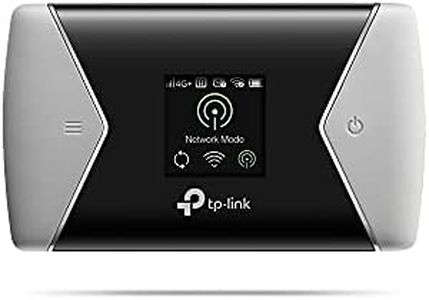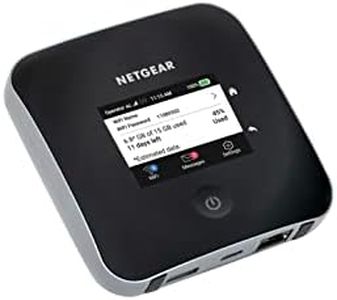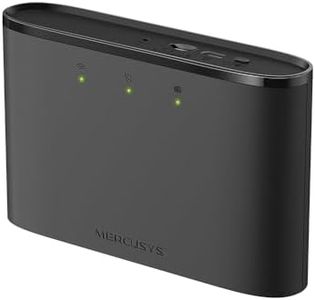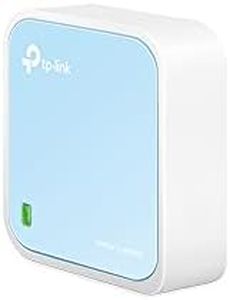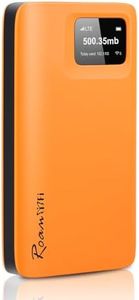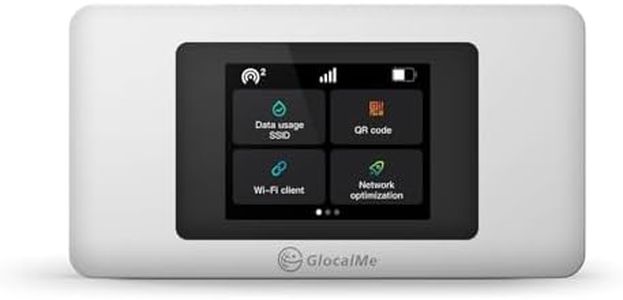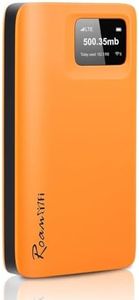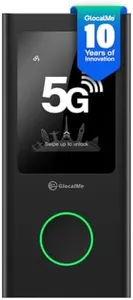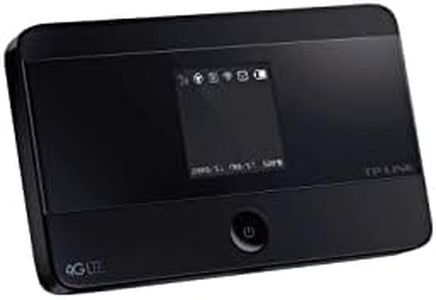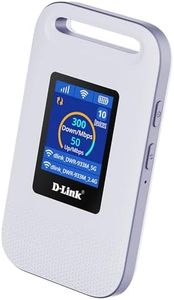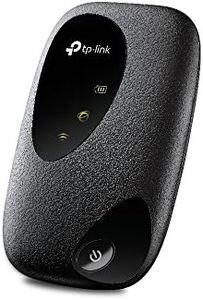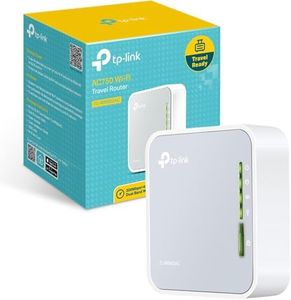We Use CookiesWe use cookies to enhance the security, performance,
functionality and for analytical and promotional activities. By continuing to browse this site you
are agreeing to our privacy policy
10 Best Portable Wifi Hotspots
From leading brands and best sellers available on the web.By clicking on a link to a third party's website, log data is shared with that third party.
Buying Guide for the Best Portable Wifi Hotspots
Portable Wi-Fi hotspots are handy devices that allow you to create your own internet connection wherever you go by using a mobile network. Picking the right portable Wi-Fi hotspot involves understanding how you plan to use it—whether you’ll be traveling a lot, working remotely, or simply want a backup internet source at home. Examining the right features ensures you get reliable, fast, and safe internet access wherever you need it.Network CompatibilityNetwork compatibility refers to which cellular networks (such as 4G, 5G, LTE) the hotspot can connect to. This is important because not all devices work on all mobile network bands or with every carrier. Generally, 4G LTE is fast and widely available, while 5G provides even faster speeds but might not be everywhere yet. A global traveler may want a hotspot with broad compatibility for international SIM cards, while someone staying local can check which local bands and networks are supported. Start by checking what networks serve your typical area and pick a device compatible with those.
Battery LifeBattery life means how long the hotspot can operate before needing a recharge. This impacts how portable and convenient the device truly is, especially if you won’t have power outlets nearby. Some hotspots last just a few hours, suitable for short errands or backup connectivity, while others might power a full workday or more. Think about your daily use: if you’re out all day, look for a device with longer battery estimates (often upwards of 10 hours); if you only need brief access, shorter battery life may suffice.
Connection SpeedConnection speed is all about how fast data moves between your devices and the internet, often measured in Mbps or Gbps. Faster is usually better for video calls, streaming, and downloads, but actual speeds depend on both the hotspot device and the local mobile network. Devices supporting higher network classes (like 5G or advanced LTE) enable quicker connections where coverage exists. If you mostly browse or check emails, lower speeds are fine; for intensive activities like streaming HD video or gaming, consider a device supporting the fastest networks available to you.
Maximum Connected DevicesThis specification tells you how many gadgets (like phones, laptops, or tablets) your hotspot can connect at once. Some hotspots allow only a handful of devices, which is adequate for solo use or small groups, while others handle a dozen or more, suitable for families or shared workspaces. Think about how many users or devices you’ll connect regularly and pick a model with a capacity slightly above that number for flexibility.
SIM Card Type and FlexibilityMany portable hotspots require a SIM card for mobile data, and the type of SIM (regular, micro, nano, or eSIM) can vary. Some devices are 'unlocked,' working with SIM cards from different carriers; others are tied to one provider. If you travel or plan to swap carriers, an unlocked hotspot provides flexibility. Be sure to confirm what type of SIM your chosen device uses, and check that it’s easy to get and replace when needed.
Security FeaturesSecurity features help keep your connection safe from unwanted users or hackers. These may include password protection, advanced encryption like WPA3, or guest network options. If you use your hotspot in public or for sensitive work, strong security is crucial. For most users, a device with standard password protection and up-to-date encryption is sufficient, but those handling private files or important business data should prioritize strong security options.
Size and PortabilitySize and portability cover how easy the hotspot is to carry. Some are small enough to fit in your pocket, while others might be a bit bulkier but offer bigger batteries. If you need to travel light or often move around, consider a lightweight, compact model; if you’re mostly stationary or don’t mind some extra size for more battery power, a larger device might be fine.


